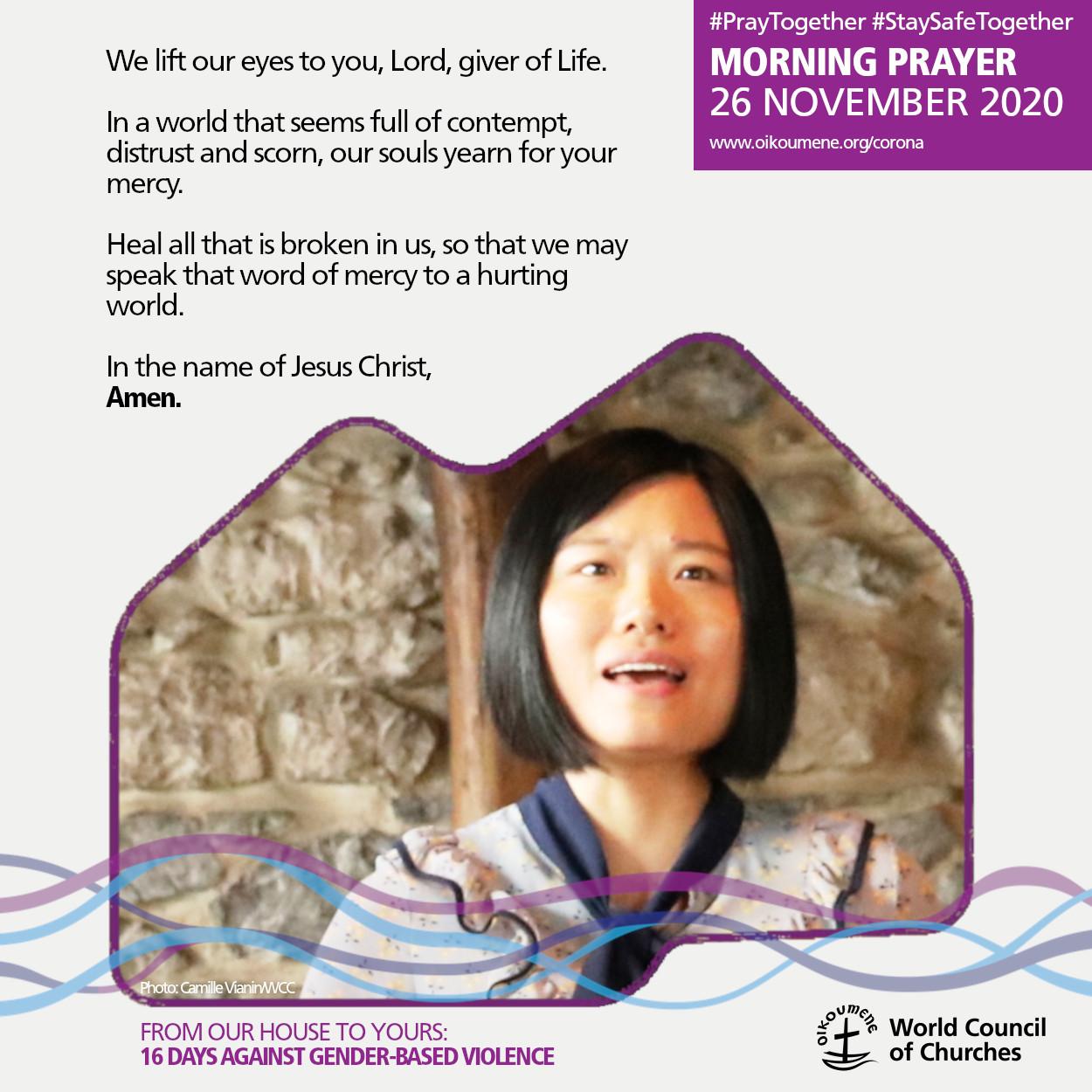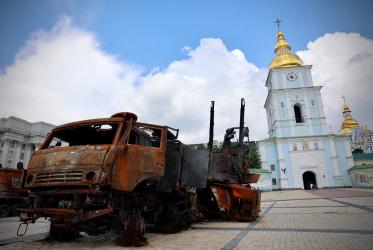Biblical Inspiration: Weaving Fabrics of Support – based on Exodus 1:15 – 16, 19 -22; 2:1-9A, 10B; 3:9A, 10B, 12B
Jochebed: I hear that our son is back and that he is going to meet Pharaoh and seek the freedom of our Hebrew people.
Bithiah: Oh yes. I am so proud of him. We have raised him well, with a passion for justice; haven’t we?
Shiphrah: Yes we did ... Remember when pharaoh ordered the death of all Hebrew male babies?
Puah: I do remember. We had to convince him to believe that Hebrew women were strong enough to deliver their babies before we could help.
Bithiah: Women, that was brilliant! I really wanted to help more, but the political tension surrounding the Hebrew genocide was too much to combat publicly. I had to act behind the scenes.
Miriam: We believe you. When you sent Amah to rescue Moshe from the river Nile, I was surprised that you would adopt him, even though we knew that was God’s plan for Moshe. Then you sent him back for us to wean him, I realised that Shiphrah and Puah were right –you were on our side. You are truly committed to help our people.
Puah: So glad you made that discovery for yourself Miriam. We know Bithiah personally. After we agreed on what to tell pharaoh about the Hebrew babies, Bithiah convinced Pharaoh to believe us.
Amah: Well they say, “It takes village to raise a child”. When I saw Moshe in the river, I realised that he was Adonai’s choice to rescue this village. Who could imagine that he would come back and take up this task of demanding freedom after being away for so long?
Jochebed: Moshe is a good son. God told me that he was a special child who would liberate us, ever since he was conceived.
Bithiah: Every liberation movement requires a partnership between those in power and those who are oppressed to challenge unjust power structures. Yes, we are Egyptians but we are also women – women who are partners in creating and recreating life.
Miriam: Women with passion for life and compassion!
Shiphrah: As a midwife and a mother, my calling is to bring forth healing and life, regardless of race, class or gender. Pharaoh’s decree birthed death and destruction. Change was necessary, and I knew the change must begin with me.
Puah: The cries of the babies being slaughtered… the look on the faces of their mothers… still haunt me. I vowed that I wouldn’t allow any child: boy or girl, to die on my watch!
Amah: Princess Bithiah, what do you think about your brother’s reaction when he discovers Moshe has returned to challenge his oppression of the Hebrews and secure freedom from Pharaoh’s abuse and oppressive rules?
Jochebed: That brother of yours has a serious temper. I am afraid that Moshe will have a tough time to convince him to let our people go.
Bithiah: That’s true. My brother won’t readily set anyone free. There will be more oppression against your people. Warn the women - don’t travel alone. There’s safety in numbers. Tell your men to expect that the working conditions will get worse.
Jochebed: I’ll tell them. Remember, we live this daily. But, we will be careful. Will you also warn Moshe?
Bithiah: I will speak to him tonight and assure him of my support. Jochebed; our son will be ok. The fact that he has returned after forty years is proof that Moshe is ready. He is coming with power and confidence to talk to the Pharaoh. We have trained him well. In any case, remember that Adonai is his guide. I am looking forward to supporting him tomorrow.
Miriam: Adonai is his guide and Adonai will save us.
Prayers of Hope for individuals and communities:
L1: O Christ, our Saviour, this week, we pray with the people and churches of Brunei, Malaysia, and Singapore. We are thankful for the individuals, churches and other organizations who remain committed to seeking healing, justice and truth.
L2: We bring to you the wastelands of the earth, O God:
- the no-hope places, where oppression and injustice rule,
- the deserts, where people die of hunger and thirst,
- the battlefields, where lives are invaluable and cruelly cut short,
- the earth, depleted and devastated by human greed,
- the soil, that will not yield.
(Name those places loudly or silently, or type them in the chat)
L3: We bring to you the wastelands of our life in community:
- the parishes where hope has died,
- the missions that have lost their vigour,
- the councils that fear and suspect change,
- the communities of faith that are in conflict,
- the young people who are undermined,
- the immigrants who are not accepted,
- the strangers who are suspected,
- the marginalized because they are different from us.
(Name briefly your concerns aloud or silently)
L1: We bring to you the wastelands of our lives:
- when faith and hope are in dust and ashes,
- when the fruit of the Spirit is not in evidence,
- when love does not find expression in our lives,
- when searching for meanings seems failed,
- when loneliness is so distressing,
- when being bullied becomes a daily routine,
- when demands and expectations from others betray our true selves.
(Name briefly your concerns aloud or silently)
(World YWCA – YWCA Week of Prayer Booklet, 2020, pp.38-40)
L2: For those suffering physically, mentally, and spiritually in this time of pandemic, bring wholeness and healing, O God, we hold before you those we now name in our hearts who are ill and our many prayers spoken out loud, or written in the chatroom, or in the silence of our hearts...
L3: We lift our eyes to you, Lord, giver of Life. In a world that seems full of contempt, distrust and scorn, our souls yearn for your mercy. Heal all that is broken in us, so that we may speak that word of mercy to a hurting world. In the name of Jesus Christ, Amen.
The Lord’s Prayer (in many languages, with unmuted microphone)
Benediction
We go into the world as hopeful believers, the people of God proclaiming the Good News that Christ is the Living Hope, that there is hope amid despair and that all of God’s creation can live in the joyful hope of resurrection. Amen.
(World YWCA – YWCA Week of Prayer Booklet, 2020, p.42)
The peace of Christ be with you all.
Let us share the peace of Christ with one another.
Liturgy prepared by Rebecca Sangeetha Daniel, LWF






